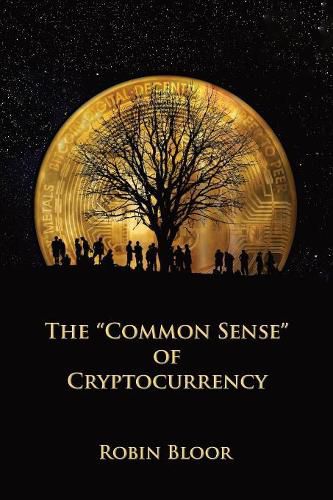Readings Newsletter
Become a Readings Member to make your shopping experience even easier.
Sign in or sign up for free!
You’re not far away from qualifying for FREE standard shipping within Australia
You’ve qualified for FREE standard shipping within Australia
The cart is loading…






This title is printed to order. This book may have been self-published. If so, we cannot guarantee the quality of the content. In the main most books will have gone through the editing process however some may not. We therefore suggest that you be aware of this before ordering this book. If in doubt check either the author or publisher’s details as we are unable to accept any returns unless they are faulty. Please contact us if you have any questions.
When the cryptocurrency bubble burst in early 2018, many commentators became dubious about the merits of cryptocurrencies. Understandably, they asked the question:
Do cryptocurrencies herald a revolution, or not?
This is not a simple question. It provokes other questions, which in turn lead to more: Can cryptocurrencies become real currencies, like the dollar or the euro? In fact, what exactly is a currency? Exactly what’s new about blockchain technology–what can it do? Which businesses can exploit it? Can cryptocurrencies undermine the big Internet ad giants like Facebook and Google? Can individuals own their data? How could that work? What exactly is personal data? What should an individual’s data rights be? How would a business manage a cryptocurrency? There is no shortage of questions like these.
In exploring such questions, Robin Bloor investigates the curious parallel between the historical revolution provoked by Gutenberg’s printing press and the revolutionary decentralization of computer power that gave birth to the blockchain. This serves as a backdrop, as Bloor switches between multiple interconnected fields of study: the nature of personal data, blockchain technology, the history of IT, the history of money, the characteristics of currencies, the limitations of cryptocurrency, and more.
The Common Sense of Cryptocurrency is remarkable in its clarity, its breadth and its depth. Among other things, it defines what money is and how currencies should be viewed and understood, It advises on how crypto businesses should manage their cryptocurrencies and it even proposes what the individual’s data rights should be.
If you need to understand cryptocurrency, and you probably do, you need to read this book.
$9.00 standard shipping within Australia
FREE standard shipping within Australia for orders over $100.00
Express & International shipping calculated at checkout
This title is printed to order. This book may have been self-published. If so, we cannot guarantee the quality of the content. In the main most books will have gone through the editing process however some may not. We therefore suggest that you be aware of this before ordering this book. If in doubt check either the author or publisher’s details as we are unable to accept any returns unless they are faulty. Please contact us if you have any questions.
When the cryptocurrency bubble burst in early 2018, many commentators became dubious about the merits of cryptocurrencies. Understandably, they asked the question:
Do cryptocurrencies herald a revolution, or not?
This is not a simple question. It provokes other questions, which in turn lead to more: Can cryptocurrencies become real currencies, like the dollar or the euro? In fact, what exactly is a currency? Exactly what’s new about blockchain technology–what can it do? Which businesses can exploit it? Can cryptocurrencies undermine the big Internet ad giants like Facebook and Google? Can individuals own their data? How could that work? What exactly is personal data? What should an individual’s data rights be? How would a business manage a cryptocurrency? There is no shortage of questions like these.
In exploring such questions, Robin Bloor investigates the curious parallel between the historical revolution provoked by Gutenberg’s printing press and the revolutionary decentralization of computer power that gave birth to the blockchain. This serves as a backdrop, as Bloor switches between multiple interconnected fields of study: the nature of personal data, blockchain technology, the history of IT, the history of money, the characteristics of currencies, the limitations of cryptocurrency, and more.
The Common Sense of Cryptocurrency is remarkable in its clarity, its breadth and its depth. Among other things, it defines what money is and how currencies should be viewed and understood, It advises on how crypto businesses should manage their cryptocurrencies and it even proposes what the individual’s data rights should be.
If you need to understand cryptocurrency, and you probably do, you need to read this book.